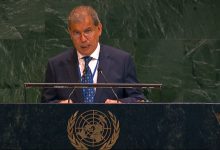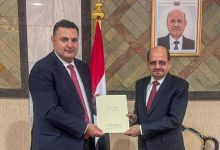UN reports that approximately 30% of Syrian refugees express a desire to return to their homeland.
UN Reports 30% of Syrian Refugees Want to Return Home

Filippo Grandi, the United Nations High Commissioner for Refugees, announced that approximately 30% of the millions of Syrian refugees residing in Middle Eastern countries express a desire to return to their homeland next year. This marks a significant increase from nearly 0% just a year ago, following the fall of President Bashar al-Assad’s regime.
Shift in Refugee Sentiment
This notable shift stems from a UN assessment conducted in January, shortly after opposition forces ousted President Assad. This event effectively ended a 13-year civil war, which resulted in one of the largest refugee crises in modern history. Grandi shared insights with a small group of journalists in Damascus after meetings with the new Syrian administration, stating, “The index has finally moved after years of decline.”
He emphasized that the number of Syrians wishing to return has surged from nearly zero to around 30% within just a few weeks. “There is a message here that I believe is extremely important, and we must listen to it and act accordingly,” he added.
Recent Returns and Future Goals
Grandi reported that nearly 200,000 Syrian refugees have already returned since the regime’s downfall. Additionally, around 300,000 individuals fled to Syria from Lebanon during the conflict between Hezbollah and Israel in September and October. Most of these returnees are believed to have remained in the country.
The new Syrian administration aims to facilitate the return of approximately six million Syrians who fled abroad, along with millions displaced internally. However, the civil war has left extensive destruction in major cities, leading to a collapse of essential services and widespread poverty among the population. Syria continues to face severe Western sanctions that effectively isolate its economy from the global market.
Support for Returning Refugees
To assist returning Syrians, many of whom sell their possessions to afford the journey home, UN agencies are providing cash assistance for relocation. They will also help supply food and rebuild at least parts of destroyed homes. Grandi stressed the need for increased support from donors and suggested a reevaluation of existing sanctions. He did not directly comment on the new U.S. administration’s recent announcement regarding a broad suspension of foreign aid programs.
“If sanctions are lifted, this would improve conditions in the areas where people return,” Grandi stated. Earlier this month, the United States issued a six-month sanctions waiver for certain sectors, including energy. However, the new Syrian administration insists that further easing is necessary.
Political Developments and Future Prospects
Grandi noted that refugees are responding to a political process initiated by the new administration under Ahmad al-Shara. This process aims to establish a governing authority that better represents Syria’s diversity by March 1. “Refugees are listening to what he and his administration are saying, which is why I believe many people have decided to return. However, more will come if these positive developments continue,” he concluded.
This evolving situation highlights the complex interplay between political changes in Syria and the aspirations of its displaced citizens. As the country navigates its recovery, the international community’s response will play a crucial role in shaping the future for millions of Syrians.
To follow the news in Arabic


